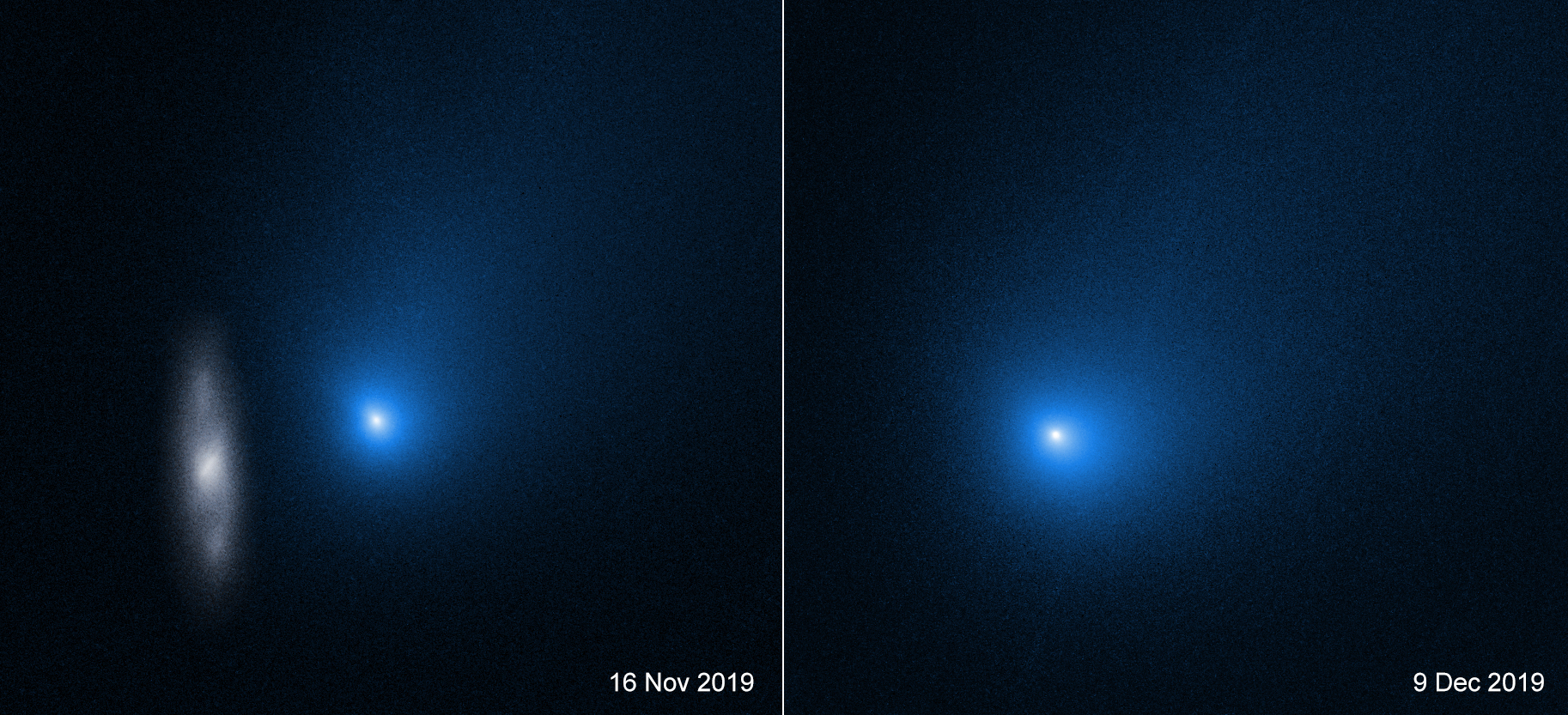2019 December 14

Explanation: From somewhere else in the Milky Way galaxy, Comet 2I/Borisov is just visiting the Solar System. Discovered by Crimean amateur astronomer Gennady Borisov on August 30, 2019, the first known interstellar comet is captured in these two recent Hubble Space Telescope images. On the left, a distant background galaxy near the line-of-sight to Borisov is blurred as Hubble tracked the speeding comet and dust tail about 327 million kilometers from Earth. At right, 2I/Borisov appears shortly after perihelion, it's closest approach to Sun. Borisov's closest approach to our fair planet, a distance of about 290 million kilometers, will come on December 28. Even though Hubble's sharp images don't resolve the comet's nucleus, they do lead to estimates of less than 1 kilometer for its diameter.
https://apod.nasa.gov/apod/astropix.html

Explanation: From somewhere else in the Milky Way galaxy, Comet 2I/Borisov is just visiting the Solar System. Discovered by Crimean amateur astronomer Gennady Borisov on August 30, 2019, the first known interstellar comet is captured in these two recent Hubble Space Telescope images. On the left, a distant background galaxy near the line-of-sight to Borisov is blurred as Hubble tracked the speeding comet and dust tail about 327 million kilometers from Earth. At right, 2I/Borisov appears shortly after perihelion, it's closest approach to Sun. Borisov's closest approach to our fair planet, a distance of about 290 million kilometers, will come on December 28. Even though Hubble's sharp images don't resolve the comet's nucleus, they do lead to estimates of less than 1 kilometer for its diameter.
https://apod.nasa.gov/apod/astropix.html

No comments:
Post a Comment